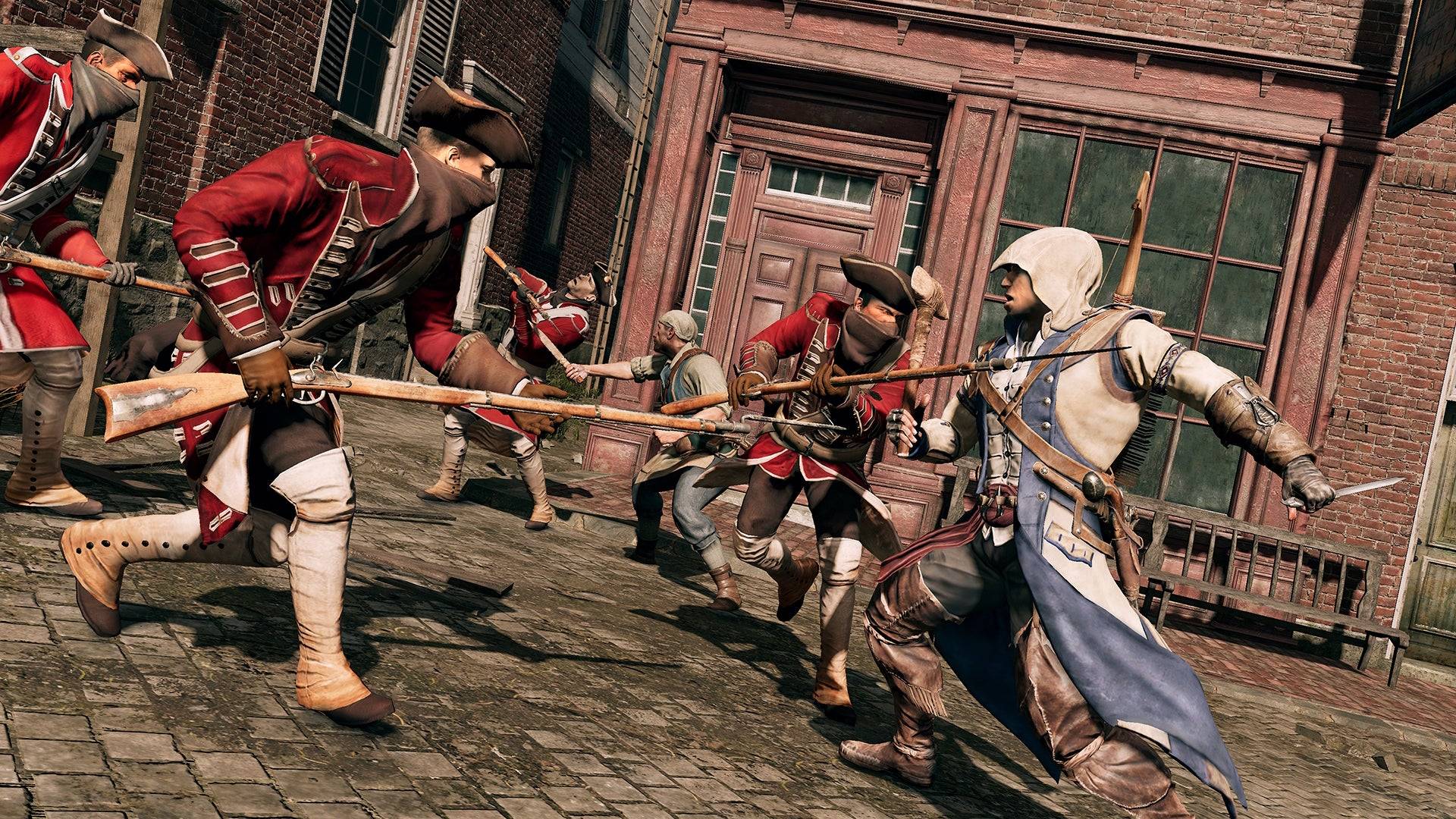One of the most unforgettable moments in the entire Assassin's Creed series unfolds at the beginning of Assassin's Creed 3, where Haytham Kenway assembles his team in the New World. Players might initially mistake them for assassins due to Haytham's use of a hidden blade and his charismatic demeanor, reminiscent of Ezio Auditore. Up to this point, Haytham plays the hero, freeing Native Americans from captivity and confronting British redcoats. However, the revelation comes when he utters the Templar creed, "May the Father of Understanding guide us," exposing him as a Templar, not an assassin.
This twist exemplifies the peak potential of Assassin's Creed. The first game introduced a compelling concept—tracking and assassinating targets—but lacked depth in its storytelling and character development. Assassin's Creed 2 improved by introducing the iconic Ezio, yet his adversaries remained underdeveloped, as seen with Cesare Borgia in Assassin's Creed: Brotherhood. It was not until Assassin's Creed 3, set during the American Revolution, that Ubisoft fully developed both the pursuer and the pursued. This approach created a seamless narrative flow from setup to payoff, achieving a unique balance between gameplay and story that has yet to be replicated in subsequent titles.

While the current RPG era of Assassin's Creed has generally received positive feedback, there's a consensus among fans and critics that the series has been on a downward trajectory. The reasons for this decline are debated, with some citing the increasingly fantastical elements like battles against gods like Anubis and Fenrir, or the introduction of varied romance options and historical figures like Yasuke in Assassin's Creed Shadows. Personally, I believe the decline stems from the series' shift away from character-driven narratives, which have become overshadowed by expansive open-world elements.
Over the years, Assassin's Creed has evolved from a focused action-adventure to incorporate RPG elements, including dialogue trees, XP-based leveling, loot boxes, microtransactions, and gear customization. However, as the games have grown larger, they've felt increasingly hollow, not just in terms of repetitive side missions but also in their storytelling.
For instance, while Assassin's Creed Odyssey offers more content than Assassin's Creed 2, much of it can feel unpolished and superficial. The inclusion of player choice in dialogue and actions, meant to enhance immersion, often results in less polished scripts that struggle to maintain character consistency across various player-driven scenarios. The tightly scripted narratives of the earlier action-adventure titles allowed for well-defined characters, unlike the more recent games, which can feel less immersive due to interactions with seemingly robotic characters rather than richly developed historical figures.
The earlier games, particularly those on the Xbox 360/PS3, showcased some of the best writing in gaming. Memorable moments include Ezio's defiant "Do not follow me, or anyone else!" speech after defeating Savonarola, and Haytham's tragic yet proud final words to his son, Connor:
"Don't think I have any intention of caressing your cheek and saying I was wrong. I will not weep and wonder what might have been. I'm sure you understand. Still, I'm proud of you in a way. You have shown great conviction. Strength. Courage. All noble qualities. I should have killed you long ago."

The quality of writing has also diminished in other ways. The modern games often oversimplify the moral conflict between Assassins and Templars, whereas earlier entries like Assassin's Creed 3 explored the nuanced gray areas between the two factions. Each Templar Connor defeats challenges his beliefs; William Johnson suggests the Templars could have prevented the Native American genocide, Thomas Hickey mocks the Assassins' idealism, and Benjamin Church argues that perspective shapes reality, portraying the British as victims rather than aggressors.
Haytham himself undermines Connor's trust in George Washington, asserting that the new nation will be just as oppressive as the British monarchy. This is reinforced when it's revealed that Washington, not Charles Lee, ordered the burning of Connor's village. By the game's end, players are left with more questions than answers, enhancing the narrative depth.
AnswerSee ResultsReflecting on Assassin's Creed's history, the iconic track "Ezio's Family" from the Assassin's Creed 2 soundtrack, composed by Jesper Kyd, became the series' theme due to its emotional resonance with players. The PS3-era games, especially Assassin's Creed 2 and Assassin's Creed 3, focused on character-driven stories. The melancholic tones of "Ezio's Family" evoke not just the Renaissance setting but also Ezio's personal grief over his family's loss. While I appreciate the expansive world-building and graphical advancements in the current generation of Assassin's Creed games, I hope the franchise can return to crafting focused, intimate stories that initially captivated me. Unfortunately, in today's market dominated by expansive open worlds and live service ambitions, such a return might not align with "good business" practices.









